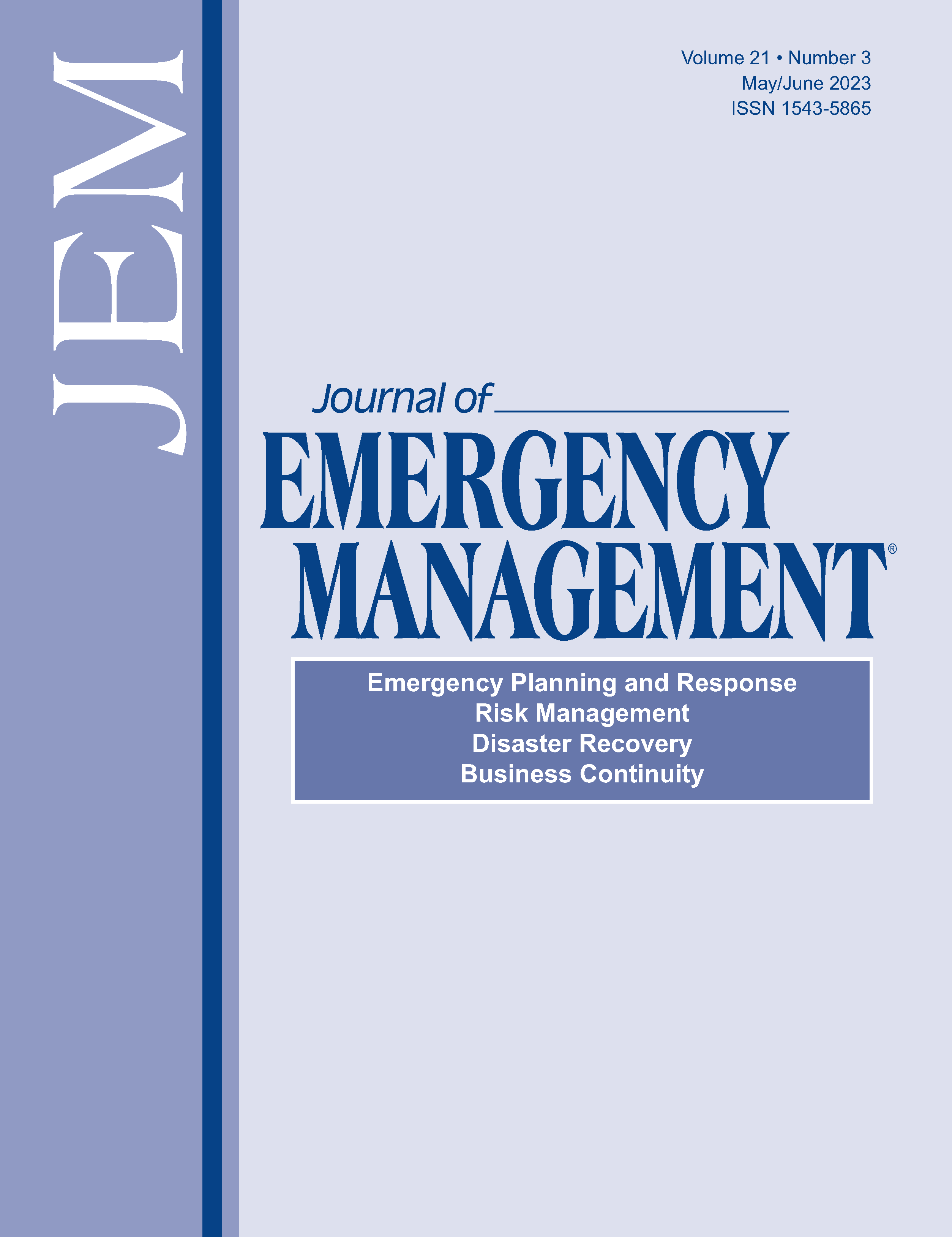Stressors and Mental Health Survey of Emergency Management Professionals
Factors in Recruiting and Retaining Emergency Managers
DOI:
https://doi.org/10.5055/jem.0787Keywords:
mental health, stressors, Stressors and Mental Health Survey, emergency managersAbstract
Emergency Managers (EMs) have a unique set of mental health stressors compared to other professions. Early 2019 anecdotal information from the field combined with data from a Journal of Emergency Management (JEM) Higher Ed Survey conducted in 2017 suggested an accelerating rate of Emergency Managers leaving the field for other professions or leaving the field completely. Additional communication from practitioners in the field, before and during the pandemic, suggested that these unique stressors on EMs were compounding the exodus from the field.
Trained seasoned EMs do not emerge from higher ed but are the product of years of higher education and experiential knowledge. The current rate of departure portents a shortage of trained EMs in the near future.
The JEM Stressors and Mental Health Survey (SMHS) was designed to quantify the mental health of emergency managers using the validated Secondary Traumatic Stress Scale (STSS). The Emergency Response Questionnaire (ERQ), a validated survey, is used to confirm personality type of the respondent. Organizational type, education, and many other factors are assessed to determine their effect on the EM’s mental health, their ability to function efficiently and effectively, and their propensity to leave the field.
The data collected will be used to establish baselines and support analysis and research on how we can better lead, support, recruit, retain, and grow as emergency management professionals and organizations capable of meeting the increasing demands of tomorrow.
Published
How to Cite
Issue
Section
License
Copyright 2007-2025, Weston Medical Publishing, LLC and Journal of Emergency Management. All Rights Reserved.






